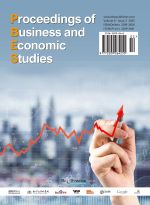Abstract
With the advent of the era of big data, the exponential growth of data generation has provided unprecedented opportunities for innovation and insight in various fields. However, increasing privacy and security concerns and the existence of the phenomenon of “data silos” limit the collaborative utilization of data. This paper systematically discusses the technological progress of federated learning, including its basic framework, model optimization, communication efficiency improvement, privacy protection mechanism, and integration with other technologies. It then analyzes the broad applications of federated learning in healthcare, the Internet of Things, Internet of Vehicles, smart cities, and financial services, and summarizes its challenges in data heterogeneity, communication overhead, privacy protection, scalability, and security. Finally, this paper looks forward to the future development direction of federated learning and proposes potential research paths in efficient algorithm design, privacy protection mechanism optimization, heterogeneous data processing, and cross-industry collaboration.
References
Shin H, Ryu K, Kim J, et al., 2024, Application of Privacy Protection Technology to Healthcare Big Data. Digital Health, 10.
ElZemity A, Arief B, 2024, Privacy Threats and Countermeasures in Federated Learning for Internet of Things: A Systematic Review. 2024 IEEE International Conferences on Internet of Things (iThings) and IEEE Green Computing & Communications (GreenCom) and IEEE Cyber, Physical & Social Computing (CPSCom) and IEEE Smart Data (SmartData) and IEEE Congress on Cybermatics, Copenhagen, Denmark, 331–338.
Song Y, Wu Y, Xue Y, 2024, University Major Information Recommendation based on Federated Learning. Applied and Computational Engineering, 40: 280–287.
Gargary AV, De C, 2024, A Systematic Review of Federated Generative Models. arXiv. https://doi.org/10.48550/arXiv.2405.16682
Zhang H, Zhang P, Hu M, et al., 2024, FedUB: Federated Learning Algorithm Based on Update Bias. Mathematics, 12(10): 1601.
Li Y, Zhang J, Zhao Y, et al., 2024, Fairness Aware Federated Learning Framework on Heterogeneous Data Distributions. ICC 2024 IEEE International Conference on Communications, 728–733.
Wang Z, Xu H, Xu Y, et al., 2024, FAST: Enhancing Federated Learning Through Adaptive Data Sampling and Local Training. IEEE Transactions on Parallel and Distributed Systems, 35: 221–236.
Wang Y, Fu H, Kanagavelu R, et al., 2024, An Aggregation Free Federated Learning for Tackling Data Heterogeneity, Proceedings of the IEEE/CVF Conference on Computer Vision and Pattern Recognition, 26233–26242.
Yan S, 2024, Optimizing Federated Learning Efficiency: A Comparative Analysis of Model Compression Techniques for Communication Reduction. Applied and Computational Engineering, 107: 107–117.
Long Z, Chen Y, Dou H, et al., 2024, FedSQ: Sparse Quantized Federated Learning for Communication Efficiency. IEEE Transactions on Consumer Electronics, 70: 4050–4061.
Sharma M, Kaur P, 2023, An Empirical Study of Gradient Compression Techniques for Federated Learning. 2023 Second International Conference on Informatics (ICI), 1–4.
Ruan M, Li Y, Zhang W, et al., 2024, Optimal Power Control for Over-the-Air Federated Learning with Gradient Compression. 2024 IEEE 30th International Conference on Parallel and Distributed Systems (ICPADS), 326–333.
Dasari J, Joshith TS, Daya Lokesh, et al., 2023, Privacy Preserving Sensitive Data on Medical Diagnosis Using Federated Learning and Homomorphic Re-encryption. 2023 3rd International Conference on Intelligent Technologies (CONIT), 1–7.
Zhang S, Zhu J, 2023, Privacy Protection Federated Learning Framework Based on Blockchain and Committee Consensus in IoT Devices. 2023 IEEE 47th Annual Computers, Software, and Applications Conference (COMPSAC), 627–636.
Zhou A, Wang Y, Zhang Q, 2024, Energy-Efficient Resource Management for Federated Learning in LEO Satellite IoT. 2024 IEEE Wireless Communications and Networking Conference (WCNC), 1–6.
